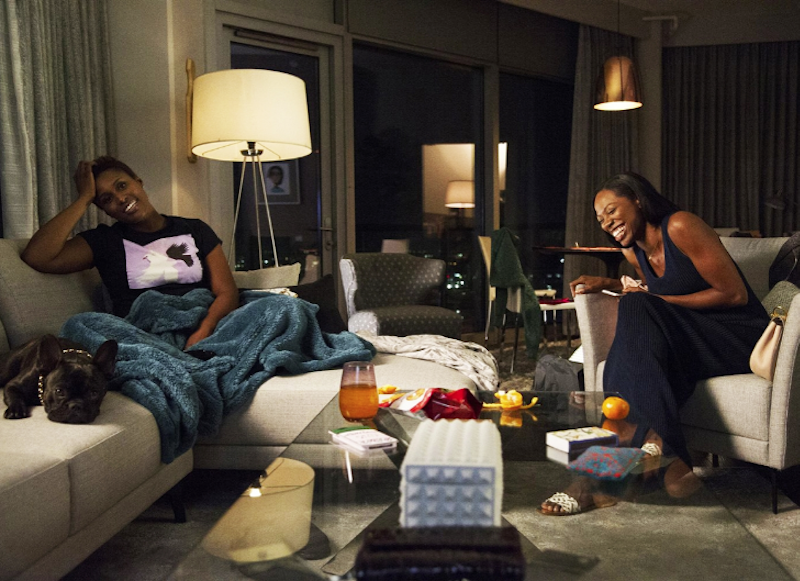TV is often the first thing to disappear from my routine when things get busy. I enjoy serial shows but don’t binge-watch a whole season: I prefer to take week-long breaks between episodes. Recently, however, I’ve gotten back into it because the future of TV has become more black—in multi-dimensional ways, not the “all black people are the same” refrain.
There are more diverse black storylines that are more representational and relatable. I am impressed (overall) with shows like Being Mary Jane, Insecure, and She’s Gotta Have It. These new shows of diversified black experiences have challenged me to think more broadly about black love and my internal biases about dating within my race. I reflect about why (instinctually) I found Dro on Insecure to be more attractive than Lawrence, why I had immediate judgments of both Molly and Nola Darling’s poly/open-relationship choices, and why initially I didn’t appreciate Mary Jane’s family dynamic (in which her parents' success/home was the source of her siblings’ stability even though their marriage was a disaster). I realized that often as black people we tend to hold one another to extreme standards, even when we’re struck with the realization that some of our individual lives and upbringings are completely different from one another but nevertheless we’re still black.
I preface many of the happy moments in my life with a statement to myself: “But you don’t have a man.” I wonder how much you can enjoy happiness and success if you don’t have someone to share it with. But, at 29—and finally feeling fabulous—the above pop culture shows are providing context to my personal shift in wrestling between desiring a partner (one man to share my life with) and immediate companionship (multiple men blurring the lines between friendship and lovers to get all of my needs met while not depending on one person to do so). And less than two years ago I didn’t even watch Netflix!
Maybe our definitions of what partnership looks like need to be critiqued, and the rise of these new shows is a resource that helps us do it. I feel like a hybrid between Issa and Molly (leaning more towards Molly—because I have spent so much time looking and waiting for my “mythical negro” only to find fuckboys at the “bottom & top” levels of dating). Then we throw Nola Darling (note: bell hook’s quote) into the mix; she fucked up my whole come-to-Jesus moment of identifying with Issa and Molly because she makes poly look so simple. She’s focused on only her needs, which I think is what hampers the ability to establish a healthy routine in any dating structure. I don’t completely rule out the multiple partners though, because recently being around one man for a long period of time annoys the shit out of me. I want my relationships to be two whole individuals coming together by choice, because I am not searching for my “other half.”
In this new moment in black culture the messages around us are clear that we can enjoy the perks of fluidity and complex desire too. It’s becoming less and less appealing to “look for my other half” because as Cher teaches us, we queens can be our own “rich man.”
Finally, if I could have a wine-down with these characters I would ask the following questions:
1. Is the “pussy” political? Can a gay male black feminist sleep with a male who isn’t a black feminist and remain loyal to the cause?
2. In poly relationships is it possible, and potentially a better route to getting your emotional and physical needs met, if you don’t sleep with each partner?
3. What are the intersecting habits between Mary Jane, Nola, and Molly? What could they learn from each other’s love hustle and professional grind?
—Follow Chaz Barracks on Twitter: @Chz_PhD

